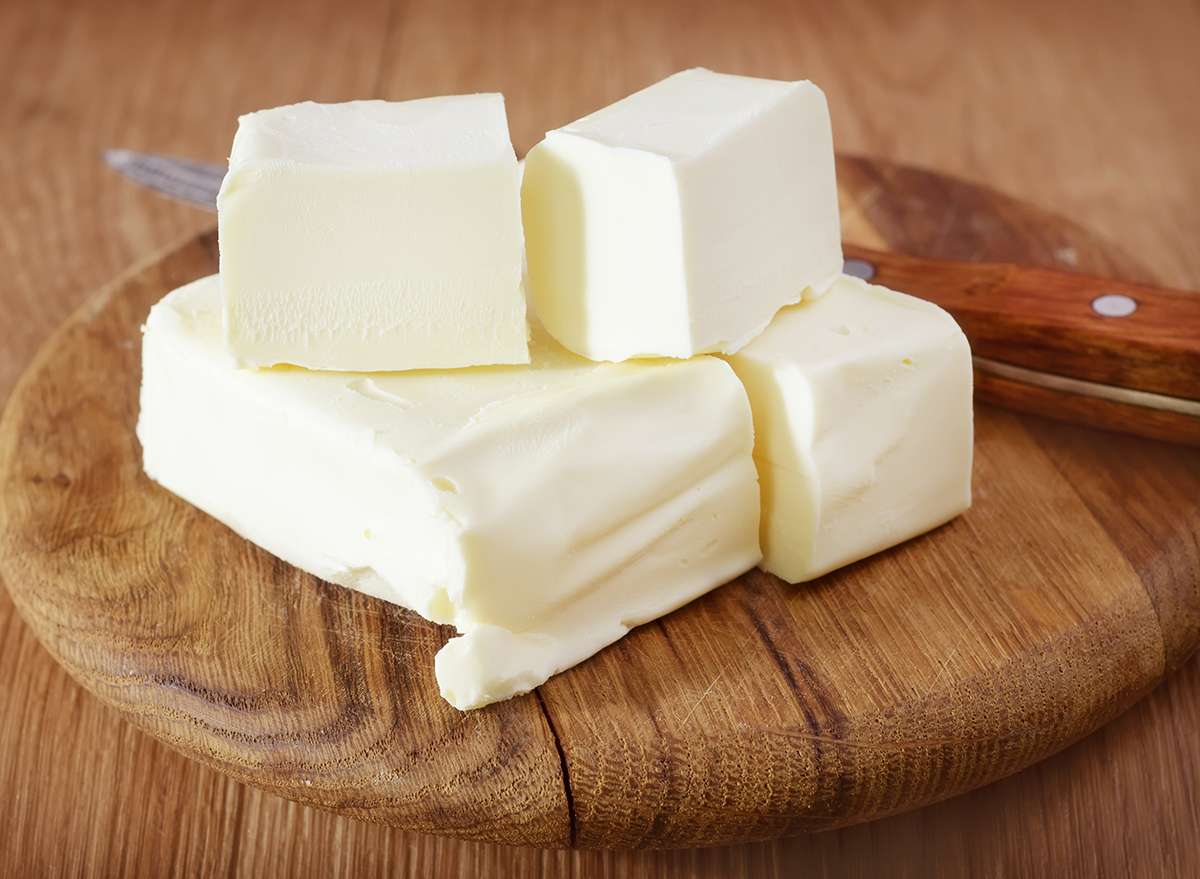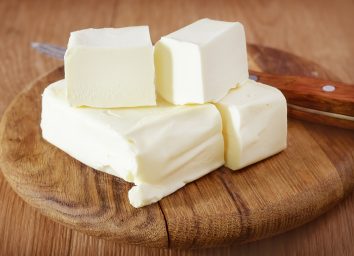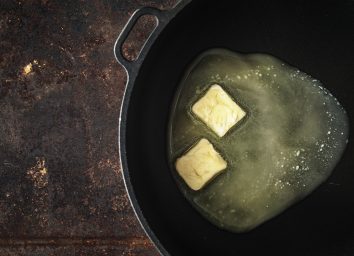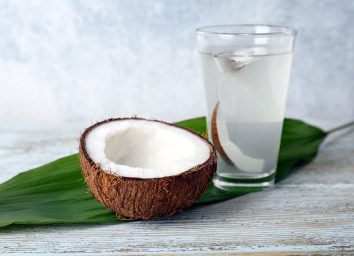Is Butter Actually All That Bad for You?

In the late 1980s, fat was considered the enemy. Today, healthy eaters are blending butter into their morning coffee and adding coconut oil to their smoothies. So what gives? Long story short: science once pointed to high-fat foods as the culprits for everything from high cholesterol and heart disease risk to weight gain. Since then though, researchers have learned some major lessons, such as the very important fact that not all fats are created equal. But what about butter—is butter bad for you?
Is the classic American fridge staple actually healthy? And how does it compare to its supposedly healthier peers?
Below, a nutritionist explains if butter is bad for you, once and for all.
First things first: is butter bad for you?
"The 'butter is bad' era is over, and butter can fit in a nutritious and healthy diet of anyone who enjoys it," says Wendy Bazilian, DrPH, RDN, dietitian, and author of the Eat Clean, Stay Lean series.
In fact, one 2016 review that assessed findings from research conducted on over 600,000 individuals concluded that butter consumption was "weakly associated with all-cause mortality" and not significantly associated with adverse cardiovascular events, such as coronary heart disease or stroke. Just beware: "That doesn't mean eat as much as you want," warns Bazilian. "Butter derives virtually all of its calories from fat and packs a mighty punch in terms of caloric density."
Let's break it down. Just one tablespoon of butter contains about 100 calories and 11.5 grams of fat, 7 of which come from saturated fat. "Those 7 grams represent 35% of the total recommended daily amount of saturated fat based on a 2,000 calorie diet," says Bazilian. By comparison, you could eat a hearty 1.25 cups of blueberries for the same amount of calories (plus fiber and antioxidants). Of course, fat is more satiating, which brings us to our next topic.
Does butter have any redeeming nutritional qualities?
Butter is a better choice compared to margarine (which may contain trace amounts of trans fats known to raise bad LDL cholesterol and increase the risk of cardiovascular disease) and other highly processed fat substitutes, says Bazilian. Still, plenty of alternatives like olive or avocado oil are lower in saturated fat and serve up added health benefits.
Calorically, butter is basically the same as olive or avocado oil (it may even contain about 30 fewer calories per serving). But the distribution of types of fat in each ingredient differ. As noted earlier, butter has the highest proportion of saturated fat, a high intake of which is associated with increased blood cholesterol levels, whereas olive and avocado oils contain more monounsaturated fats that promote heart health.
The pros and cons don't stop there.
"Ghee, or clarified butter, has less lactose and casein and a higher smoke point than butter," adds Bazilian. "Avocado oil has a very high smoke point and a neutral flavor that is perfect for cooking at high temperatures or baking." Coconut oil contains MCTs, or medium-chain triglycerides, which are saturated but may behave differently (read: better) in the body compared to animal-derived saturated fats. It also has a slightly sweet, nutty flavor.
When buying traditional butter, opt for organic and grass-fed varieties, if possible. Grass-fed butter is higher in conjugated linoleic acid, or CLA, a fatty acid which may be associated with fat loss in humans.
The bottom line on butter, please?
"If one's diet doesn't include much butter, there's really no good prescriptive reason to add it unless one needs more calories or fat, which can happen but is not common," says Bazilian.
Healthy individuals who love butter should spread the stuff in moderation. "Stick to about a tablespoon a day," suggests Bazilian. Because there's a good chance you also have other sources of saturated fat (think: meat, poultry, dairy, eggs) in your diet, it's smart to keep your butter intake in check.
Then, stress less.
"If you eat an overall nutritious menu daily including fruits and vegetables at every meal, fewer ultra-processed foods, smart proteins, whole grains, and healthy fats at meals and snacks within portions that help maintain health and weight, then the amount of butter [in your diet] should sort itself out," Bazilian assures us. "You don't have to worry too much about it."








